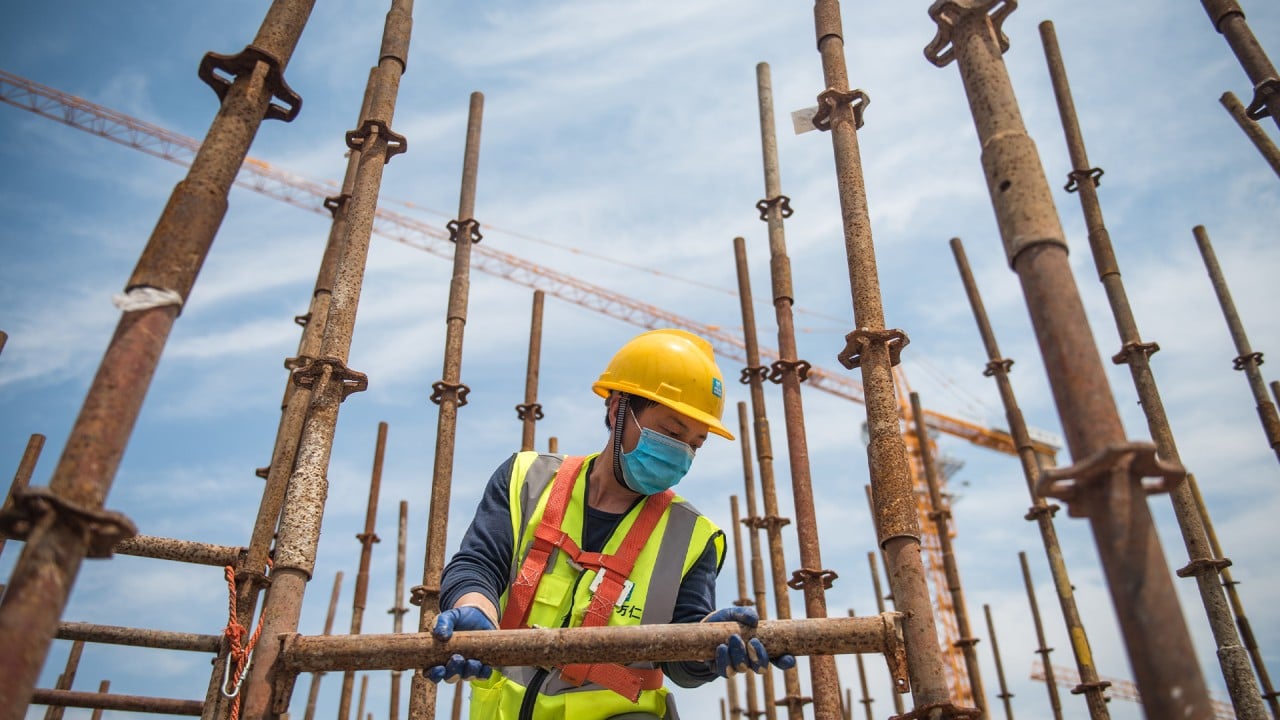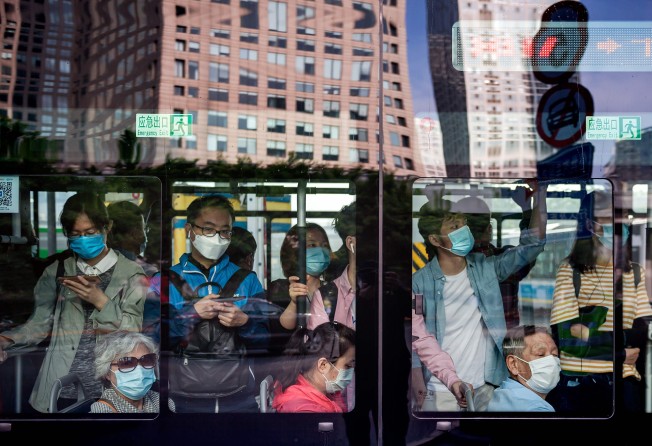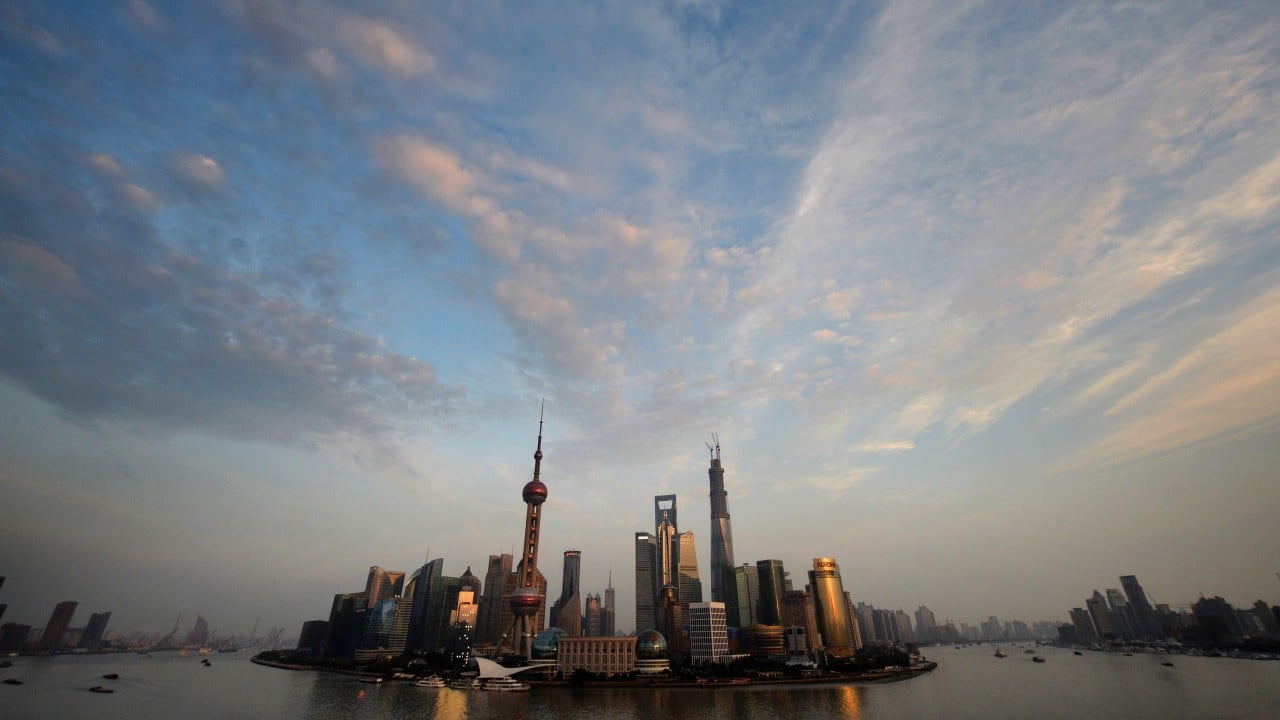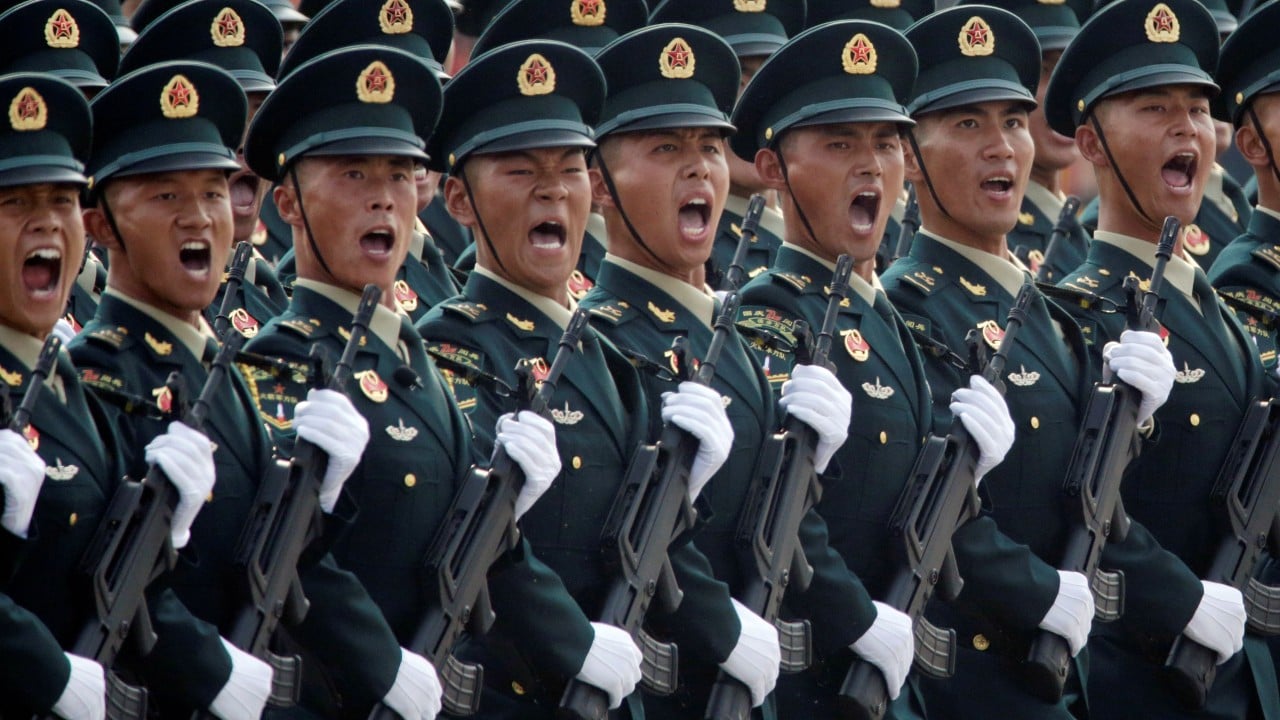
05:02
Coronavirus backlash further fraying China’s ties to global economy

China needs to do more to steady employment this year given the damage caused by the coronavirus pandemic and calls from some trade partners to decouple from the world’s second largest economy, a panel of government advisers and academics said on Tuesday.
Beijing wants to keep the urban surveyed unemployment rate steady at about 6 per cent in 2020, while creating 9 million new jobs. But David Li Daokui, a professor at Tsinghua University and former adviser to China’s central bank, said the central government needs to step up stimulus efforts to steady job growth.
At least 10 million jobs would need to be created to keep the unemployment rate steady this year, Li said at an online seminar on Tuesday.
In a report published last month, Tsinghua University researchers led by Li estimated that China would need to grow between 3 per cent to 4 per cent this year, backed by an additional job-focused stimulus of 3 trillion yuan (US$423.8 billion), to create the 10 million new jobs.

05:02
Coronavirus backlash further fraying China’s ties to global economy
However, a World Bank forecast on Tuesday said that China would fall well short of that growth rate, expanding only 1 per cent this year – the slowest pace in more than four decades – as weak global demand and insufficient funding for domestic companies weighs on growth.
Last month, Beijing announced a fiscal stimulus programme focused primarily on new infrastructure construction to support growth.
It expanded the central government fiscal deficit target to 3.6 per cent of gross domestic product (GDP), the highest level in a decade, and stepped up government borrowing to a record high to stabilise the economy, which contracted 6.8 per cent in the first quarter amid widespread lockdowns to contain the coronavirus.
Li said the central government’s stimulus was smaller than he had anticipated in the Tsinghua study, adding that China needed to focus more on supporting consumption and the associated employment benefit. The researchers said Beijing should consider boosting car and property sales.
“If we want to achieve the goal of economic growth or employment stabilisation, consumption must be stabilised so it does not drag GDP down too much,” the study said.
“According to our estimates, if car sales could return to 2017 levels, it would increase the annual GDP growth rate by 0.8 percentage points, which would completely offset the negative impact from the catering, hotel and transport industries on GDP in the first half of 2020.”
Li said he believed policymakers wanted to remain prudent to avoid the mistakes made in 2008 during the global financial crisis. Beijing launched a 4 trillion yuan recovery package, but ended up with a mountain of debt and wasteful spending.
“If the current stimulus plan isn’t sufficient, it will definitely be expanded,” Li said at the seminar organised by The Economic Observer. “I am certain fiscal policy will continue to expand next year.”

05:59
Coronavirus: What’s going to happen to China’s economy?
As part of its stimulus, Beijing increased the issuance limit for local government special bonds used to fund major projects by 1.6 trillion yuan to 3.75 trillion yuan.
It will also issue 1 trillion yuan in special treasury bonds, the proceeds of which will go directly to local governments at the county and city levels to support their operations.
Tsinghua’s study suggested the stimulus should also focus on subsidising low-income families and individuals in Hubei, the provincial economy hardest hit by the pandemic.
Proceeds from the special treasury bonds should be used to improve rural housing, renovate old communities, as well as build infrastructure and medical facilities, the study said. This would bring medium to long-term investment, employment and income to local communities, it added.
Stimulus of at least 4.5 trillion yuan would be needed if China wanted to meet its goal of building a “moderately prosperous society” by the end of this year, the cornerstone of which is a doubling GDP in 2020 from 2010, according to researchers.
Zhu Baoliang, chief economist at the State Information Centre’s Economic Forecasting Department, which is part of the state planning agency, said the pressure to create new jobs this year will be “huge”.
“Between January and April this year, around 50 and 60 million people were not working, although unemployment was at 6 per cent,” Zhu said at the seminar. The surveyed urban unemployment rate, however, does not include tens of millions of migrant workers who lost their jobs during the lockdowns.
“Since 2019, the China-US trade conflict has continued to have an impact [on corporate investment]. Tax expenses are still high for companies. In the first quarter this year, companies recorded a loss of 2.2 trillion yuan and bad debts are growing.”

04:12
Are Xi Jinping’s China and Donald Trump’s US destined for armed conflict?
So too are calls from developed countries such as the US and some in Europe to reduce reliance on China in global supply chains. That would have an impact on the nation’s employment and long-term economic development, the panellists said.
Li said tensions between China and the US could potentially affect the employment prospects of university graduates who majored in science and related fields – some 40 per cent of all Chinese graduates.
“The pandemic has triggered concerns from developed countries when it comes to improving their own industries,” said Zhao Hualin, the inspection department team leader at China’s State Assets Supervision and Administration Commission, which supervises government-owned firms.
“Especially given the anti-global trend, it may become difficult to transfer advanced manufacturing and research to our nation. And this is what we need to upgrade our industries and our economy.”